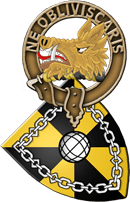While the history of Clan Campbell evolved in many places besides their great castles, the remains of such places are among the most evocative and interesting to visit today. Many of the local population would originally have been involved in their construction and supply, and many in their later defense and support. Those listed here are only a selection of the more formidable of the Campbell castles. Innis Chonnel is not open to the public. Inveraray Castle and Cawdor Castle are, of course, still inhabited but are open to the public for an entrance fee on certain days in season. The others are open to the public in the summer. This is currently only a partial list of the Campbell Castles that still exist. We are adding new information as it becomes available.
In Scotland, earlier fortifications had included hill forts, brochs, and duns; and many castles were on the site of these earlier buildings. The first castles were built in Scotland in the 11th and 12th centuries, with the introduction of Anglo-Norman influence. These motte and bailey castles were replaced with the first stone-built castles from around 1200.
By the late 14th century, the large curtain-walled castles had begun to give way to more modest tower houses – vertical dwellings with less formidable defences. This type of vertical house continued to be popular with Scotland's landowning class through to the late 17th century, when classical architecture made its first appearance in the country. Meanwhile, the advance of artillery pressed military engineers to devise stronger fortifications for important royal strongholds.
Tower houses and castles were often given painted ceilings and decorative plasterwork in the 16th and 17th centuries, employing distinctive national styles. In the late 18th century, forms found in medieval Scottish architecture were revived and castle-style houses were constructed. These "castles" had no defensive capability, but drew on military and tower-house architecture for their decorative details. This architectural trend culminated in the Scottish Baronial style of the 19th century.
There have been well over two thousand castles in Scotland, although many are known only through historical records. They are found in all parts of the country although tower houses and peel towers are concentrated along the border with England, while the best examples of larger Renaissance-era tower houses are clustered in the north-east.

